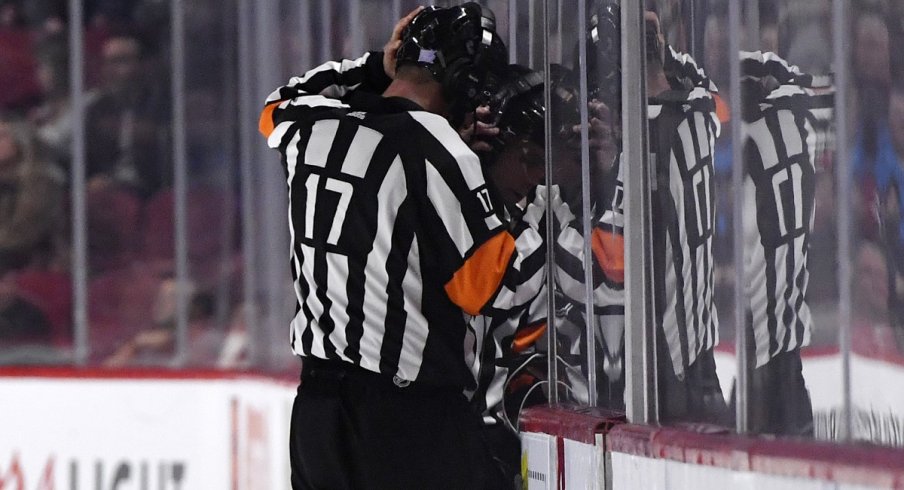With the NHL season paused for the foreseeable future, we thought now would be as good a time as ever to offer up a few rule changes that we think would immediately improve the league as a sport, a business, and as a consumer product.
Agree or disagree? Have other rule changes you'd like to see? Let us know in the comment section below!
1) Eliminate the 'puck over glass' delay of game penalty
The NHL has tinkered with its rules forever, but perhaps no penalty is more frustrating than a delay of game call when a player inadvertently shoots the puck out of play in his own end. I understand the impetus for including such a penalty in the rulebook, but it's created a far bigger problem than the solution it sought out to solve.
It's crazy, I think, that a player can cross-check or slash somebody maliciously and be given the same penalty as a player clearing the puck an inch too high of their target. It's hard to even compare it to another sport, because no other sport has this weird obsession with sometimes keeping the puck in play.
The worst part is the rule doesn't even apply if the player is in the attacking zone. Just get rid of the rule.
2) Make All Penalties "Majors"
As it stands today, any two-minute penalty (aside from a coincidental penalty) is served for 2:00 OR until the opposition scores. In essence, the goal serves as an ultimate punishment, and the team that was penalized is now admonished of their sins.
Ironically, this doesn't hold true for five-minute majors. When a team has a player assessed a five-minute major, that player must stay in the penalty box for the full duration of the penalty (in this case, five minutes).
It's long been a gripe of mine that minor penalties don't last the full two minutes. The NHL has looked for decades at ways to increase scoring, and this is an obvious solution. Keeping players in the penalty box for the full duration of their minor penalty will: (1) incentivize players to not commit penalties and (2) increase scoring.
I don't see a problem with either of those.
3) Change The Way Standings Are Calculated
Okay, so this is obviously an off-ice rule change, but I buried the lede because this is the first change I would make if given the opportunity.
My (not unique at all) proposal would ensure that each game has the same stakes: three points. Any combination of winner/loser/OT winner/shootout loser/etc. will equal three points. A regulation winner is given three points. A regulation loser is given zero. An OT/SO winner is given two points, and an OT/SO loser is given one point.
As it stands today, teams are absolutely incentivized to drag out a tied game and assure themselves at least one point in the standings. It's often dubbed the "loser point" because, well, teams will often gladly accept the one point and move on.
The current system is great for parity, or as NHL Commissioner Gary Bettman calls it, "competitive balance". It's true! With 12-15 games left in the NHL schedule, there are legitimately less than 10 teams who are definitively out of the playoff hunt. That's a staggering accomplishment, and it's good for attendance.
But it also is a complete fabrication, an artificial way of convincing teams that they're closer than they are to glory. Most NHL teams fall in this band of "fine but definitely not elite" category. The standings are overly compressed.
This solution would give teams that win in regulation an actual incentive to win now instead of getting the guaranteed loser point and figuring out the rest later.
There are plenty of detractors. Brian Burke, former NHL GM and current Sportsnet talking head said in this interview with ESPN, "You will have teams mathematically eliminated from the playoffs by Christmas. I really think so. I have zero interest in that. None. I'd rather put a sharp stick in my eye.''
I'd rather see standings that are actually representative of the teams' quality - or lack thereof.
